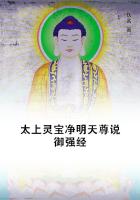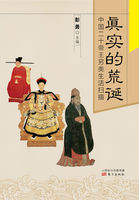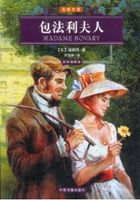In spite of the singular fancy which possessed the author of "Quentin Durward" to place the royal castle of Plessis-lez-Tours upon a height, we must content ourselves by leaving it where it really was, namely on low land, protected on either side by the Cher and the Loire; also by the canal Sainte-Anne, so named by Louis XI. in honor of his beloved daughter, Madame de Beaujeu. By uniting the two rivers between the city of Tours and Plessis this canal not only served as a formidable protection to the castle, but it offered a most precious road to commerce. On the side towards Brehemont, a vast and fertile plain, the park was defended by a moat, the remains of which still show its enormous breadth and depth. At a period when the power of artillery was still in embryo, the position of Plessis, long since chosen by Louis XI. for his favorite retreat, might be considered impregnable.
The castle, built of brick and stone, had nothing remarkable about it; but it was surrounded by noble trees, and from its windows could be seen, through vistas cut in the park (plexitium), the finest points of view in the world. No rival mansion rose near this solitary castle, standing in the very centre of the little plain reserved for the king and guarded by four streams of water.
If we may believe tradition, Louis XI. occupied the west wing, and from his chamber he could see, at a glance the course of the Loire, the opposite bank of the river, the pretty valley which the Croisille waters, and part of the slopes of Saint-Cyr. Also, from the windows that opened on the courtyard, he saw the entrance to his fortress and the embankment by which he had connected his favorite residence with the city of Tours. If Louis XI. had bestowed upon the building of his castle the luxury of architecture which Francois I. displayed afterwards at Chambord, the dwelling of the kings of France would ever have remained in Touraine. It is enough to see this splendid position and its magical effects to be convinced of its superiority over the sites of all other royal residences.
Louis XI., now in the fifty-seventh year of his age, had scarcely more than three years longer to live; already he felt the coming on of death in the attacks of his mortal malady. Delivered from his enemies; on the point of increasing the territory of France by the possessions of the Dukes of Burgundy through the marriage of the Dauphin with Marguerite, heiress of Burgundy (brought about by means of Desquerdes, commander of his troops in Flanders); having established his authority everywhere, and now meditating ameliorations in his kingdom of all kinds, he saw time slipping past him rapidly with no further troubles than those of old age. Deceived by every one, even by the minions about him, experience had intensified his natural distrust. The desire to live became in him the egotism of a king who has incarnated himself in his people; he wished to prolong his life in order to carry out his vast designs.
All that the common-sense of publicists and the genius of revolutions has since introduced of change in the character of monarchy, Louis XI. had thought of and devised. Unity of taxation, equality of subjects before the law (the prince being then the law) were the objects of his bold endeavors. On All-Saints' eve he had gathered together the learned goldsmiths of his kingdom for the purpose of establishing in France a unity of weights and measures, as he had already established the unity of power. Thus, his vast spirit hovered like an eagle over his empire, joining in a singular manner the prudence of a king to the natural idiosyncracies of a man of lofty aims. At no period in our history has the great figure of Monarchy been finer or more poetic.
Amazing assemblages of contrasts! a great power in a feeble body; a spirit unbelieving as to all things here below, devoutly believing in the practices of religion; a man struggling with two powers greater than his own--the present and the future; the future in which he feared eternal punishment, a fear which led him to make so many sacrifices to the Church; the present, namely his life itself, for the saving of which he blindly obeyed Coyctier. This king, who crushed down all about him, was himself crushed down by remorse, and by disease in the midst of the great poem of defiant monarchy in which all power was concentrated. It was once more the gigantic and ever magnificent combat of Man in the highest manifestation of his forces tilting against Nature.
While awaiting his dinner, a repast which was taken in those days between eleven o'clock and mid-day, Louis XI., returning from a short promenade, sat down in a huge tapestried chair near the fireplace in his chamber. Olivier de Daim, and his doctor, Coyctier, looked at each other without a word, standing in the recess of a window and watching their master, who presently seemed asleep. The only sound that was heard were the steps of the two chamberlains on service, the Sire de Montresor, and Jean Dufou, Sire de Montbazon, who were walking up and down the adjoining hall. These two Tourainean seigneurs looked at the captain of the Scottish guard, who was sleeping in his chair, according to his usual custom. The king himself appeared to be dozing.
His head had drooped upon his breast; his cap, pulled forward on his forehead, hid his eyes. Thus seated in his high chair, surmounted by the royal crown, he seemed crouched together like a man who had fallen asleep in the midst of some deep meditation.
At this moment Tristan and his cortege crossed the canal by the bridge of Sainte-Anne, about two hundred feet from the entrance to Plessis.
"Who is that?" said the king.
The two courtiers questioned each other with a look of surprise.
"He is dreaming," said Coyctier, in a low voice.
"Pasques-Dieu!" cried Louis XI., "do you think me mad? People are crossing the bridge. It is true I am near the chimney, and I may hear sounds more easily than you. That effect of nature might be utilized," he added thoughtfully.
"What a man!" said de Daim.















